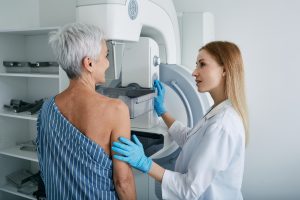 X-rays are typically used to created detailed images of your bones and soft tissues. These images help to diagnose medical problems such as bone fractures, structural issues, or foreign objects in your body, all of which can cause symptoms such as pain, swelling, or impaired physical functionality. An x-ray creates these images using a small amount of ionizing radiation.
X-rays are typically used to created detailed images of your bones and soft tissues. These images help to diagnose medical problems such as bone fractures, structural issues, or foreign objects in your body, all of which can cause symptoms such as pain, swelling, or impaired physical functionality. An x-ray creates these images using a small amount of ionizing radiation.
The minimal amount of radiation exposure that occurs during an x-ray poses few health risks for people of any age. However, depending on your medical circumstances or the type of x-ray you’re receiving, there may be certain steps you should take to further minimize any potential risks from this test. Before getting an x-ray, you should:
Ask your doctor about specific steps to prepare for your x-ray: Certain types of x-rays may require you to take specific steps before your procedure. If you’re receiving an x-ray for your upper gastrointestinal tract, for example, you should typically avoid eating or drinking for several hours ahead of time. For other types of x-rays, you may need to remove metal objects (such as jewelry) or avoid applying topical substances (such as lotions or creams.)
Wear comfortable clothing: When you receive an x-ray, you’ll usually need to change out of your clothes and into a medical gown, so it may be best to wear comfortable clothing that’s easy to remove and put back on once the procedure is completed.
You can receive an x-ray at Flushing Hospital Medical Center’s Department of Radiology. To get more information or to schedule an appointment, please call (718) 670-5458.
All content of this newsletter is intended for general information purposes only and is not intended or implied to be a substitute for professional medical advice, diagnosis or treatment. Please consult a medical professional before adopting any of the suggestions on this page. You must never disregard professional medical advice or delay seeking medical treatment based upon any content of this newsletter. PROMPTLY CONSULT YOUR PHYSICIAN OR CALL 911 IF YOU BELIEVE YOU HAVE A MEDICAL EMERGENCY.
